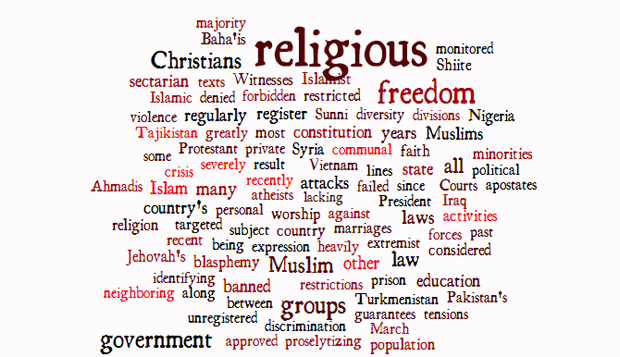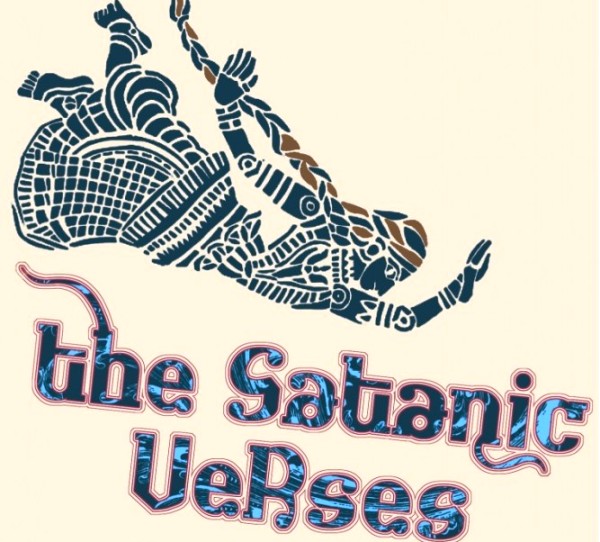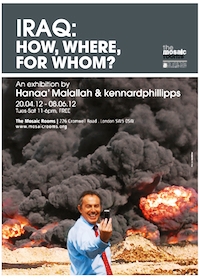Index relies entirely on the support of donors and readers to do its work.
Help us keep amplifying censored voices today.

In January, Index summarised the U.S. State Department’s “Countries of Particular Concern” — those that severely violate religious freedom rights within their borders. This list has remained static since 2006 and includes Burma, China, Eritrea, Iran, North Korea, Saudi Arabia, Sudan, and Uzbekistan. These countries not only suppress religious expression, they systematically torture and detain people who cross political and social red lines around faith.
Today the U.S. Commission on International Religious Freedom (USCIRF), an independent watchdog panel created by Congress to review international religious freedom conditions, released its 15th annual report recommending that the State Department double its list of worst offenders to include Egypt, Iraq, Nigeria, Pakistan, Tajikistan, Turkmenistan, Vietnam and Syria.
Here’s a roundup of the systematic, ongoing and egregious religious freedom violations unfolding in each.
1. Egypt
The promise of religious freedom that came with a revised constitution and ousted Islamist president last year has yet to transpire. An increasing number of dissident Sunnis, Coptic Christians, Shiite Muslims, atheists and other religious minorities are being arrested for “ridiculing or insulting heavenly religions or inciting sectarian strife” under the country’s blasphemy law. Attacks against these groups are seldom investigated. Freedom of belief is theoretically “absolute” in the new constitution approved in January, but only for Muslims, Christians and Jews. Baha’is are considered apostates, denied state identity cards and banned from engaging in public religious activities, as are Jehovah’s Witnesses. Egyptian courts sentenced 529 Islamist supporters to death in March and another 683 in April, though most of the March sentences have been commuted to life in prison. Courts also recently upheld the five-year prison sentence of writer Karam Saber, who allegedly committed blasphemy in his work.
2. Iraq
Iraq’s constitution guarantees religious freedom, but the government has largely failed to prevent religiously-motivated sectarian attacks. About two-thirds of Iraqi residents identify as Shiite and one-third as Sunni. Christians, Yezidis, Sabean-Mandaeans and other faith groups are dwindling as these minorities and atheists flee the country amid discrimination, persecution and fear. Baha’is, long considered apostates, are banned, as are followers of Wahhabism. Sunni-Shia tensions have been exacerbated recently by the crisis in neighboring Syria and extremist attacks against religious pilgrims on religious holidays. A proposed personal status law favoring Shiism is expected to deepen divisions if passed and has been heavily criticized for allowing girls to marry as young as nine.
3. Nigeria
Nigeria is roughly divided north-south between Islam and Christianity with a sprinkling of indigenous faiths throughout. Sectarian tensions along these geographic lines are further complicated by ethnic, political and economic divisions. Laws in Nigeria protect religious freedom, but rule of law is severely lacking. As a result, the government has failed to stop Islamist group Boko Haram from terrorizing and methodically slaughtering Christians and Muslim critics. An estimated 16,000 people have been killed and many houses of worship destroyed in the past 15 years as a result of violence between Christians and Muslims. The vast majority of these crimes have gone unpunished. Christians in Muslim-majority northern states regularly complain of discrimination in the spheres of education, employment, land ownership and media.
4. Pakistan
Pakistan’s record on religious freedom is dismal. Harsh anti-blasphemy laws are regularly evoked to settle personal and communal scores. Although no one has been executed for blasphemy in the past 25 years, dozens charged with the crime have fallen victim to vigilantism with impunity. Violent extremists from among Pakistan’s Taliban and Sunni Muslim majority regularly target the country’s many religious minorities, which include Shiites, Sufis, Christians, Hindus, Zoroastrians, Sikhs, Buddhists and Baha’is. Ahmadis are considered heretics and are prevented from identifying as Muslim, as the case of British Ahmadi Masud Ahmad made all too clear in recent months. Ahmadis are politically disenfranchised and Hindu marriages are not state-recognized. Laws must be consistent with Islam, the state religion, and freedom of expression is constitutionally “subject to any reasonable restrictions imposed by law in the interest of the glory of Islam,” fostering a culture of self-censorship.
5. Tajikistan
Religious freedom has rapidly deteriorated since Tajikistan’s 2009 religion law severely curtailed free exercise. Muslims, who represent 90 percent of the population, are heavily monitored and restricted in terms of education, dress, pilgrimage participation, imam selection and sermon content. All religious groups must register with the government. Proselytizing and private religious education are forbidden, minors are banned from participating in most religious activities and Muslim women face many restrictions on communal worship. Jehovah’s Witnesses have been banned from the country since 2007 for their conscientious objection to military service, as have several other religious groups. Hundreds of unregistered mosques have been closed in recent years, and “inappropriate” religious texts are regularly confiscated.
6. Turkmenistan
The religious freedom situation in Turkmenistan is similar to that of Tajikistan but worse due to the country’s extraordinary political isolation and government repression. Turkmenistan’s constitution guarantees religious freedom, but many laws, most notably the 2003 religion law, contradict these provisions. All religious organizations must register with the government and remain subject to raids and harassment even if approved. Shiite Muslim groups, Protestant groups and Jehovah’s Witnesses have all had their registration applications denied in recent years. Private worship is forbidden and foreign travel for pilgrimages and religious education are greatly restricted. The government hires and fires clergy, censors religious texts, and fines and imprisons believers for their convictions.
7. Vietnam
Vietnam’s government uses vague national security laws to suppress religious freedom and freedom of expression as a means of maintaining its authority and control. A 2005 decree warns that “abuse” of religious freedom “to undermine the country’s peace, independence, and unity” is illegal and that religious activities must not “negatively affect the cultural traditions of the nation.” Religious diversity is high in Vietnam, with half the population claiming some form of Buddhism and the rest identifying as Catholic, Hoa Hao, Cao Dai, Protestant, Muslim or with other small faith and non-religious communities. Religious groups that register with the government are allowed to grow but are closely monitored by specialized police forces, who employ violence and intimidation to repress unregistered groups.
8. Syria
The ongoing Syrian crisis is now being fought along sectarian lines, greatly diminishing religious freedom in the country. President Bashar al-Assad’s forces, aligned with Hezbollah and Shabiha, have targeted Syria’s majority-Sunni Muslim population with religiously-divisive rhetoric and attacks. Extremist groups on the other side, including al-Qaeda and the Islamic State of Iraq and the Levant (ISIL), have targeted Christians and Alawites in their fight for an Islamic state devoid of religious tolerance or diversity. Many Syrians choose their allegiances based on their families’ faith in order to survive. It’s important to note that all human rights, not just religious freedom, are suffering in Syria and in neighboring refugee camps. In quieter times, proselytizing, conversion from Islam and some interfaith marriages are restricted, and all religious groups must officially register with the government.
This article was originally posted on April 30, 2014 at Religion News Service

Inna Lillahi wa inna ilaihi raji’un. I am informing all brave Muslims of the world that the author of The Satanic Verses, a text written, edited, and published against Islam, the Prophet of Islam, and the Qur’an, along with all the editors and publishers aware of its contents, are condemned to death. I call on all valiant Muslims wherever they may be in the world to kill them without delay, so that no one will dare insult the sacred beliefs of Muslims henceforth. And whoever is killed in this cause will be a martyr, Allah Willing. Meanwhile if someone has access to the author of the book but is incapable of carrying out the execution, he should inform the people so that [Rushdie] is punished for his actions. Rouhollah al-Mousavi al-Khomeini.”
On 14 February 1989, 25 years ago today, the supreme leader of the Islamic Republic of Iran handed down a death sentence not just on British author Salman Rushdie, but on anyone associated with the publication of his novel the Satanic Verses.
It’s always worth writing down exactly what happened. A medievalist tyrant decided a novelist and his editors and publishers should die, because he was offended by a book he could not claim to have read.
Rushdie went into hiding. Hitoshi Igarashi, the novel’s Japanese translator, was murdered. Because he had translated a novel.
The controversy did not begin with Khomeini – he merely attempted to capitalise on it. No, the first countries where the book stoked the ire of Islamists were South Africa and India, both countries whose divide-and-rule laws (the Indians’ law inherited from British colonial law, the South Africans’ in a diabolical league of its own) meant it paid to promote communal grievance.
Khomeini’s fatwa seems, in hindsight, a desperate bid to distract the people of Iran, and the rest of the Muslim world, from the fact that his reign, about to end, had been a disaster. Iranians had hoped their 1979 revolution would deliver them from the oppression of the Peacock Throne. Instead they just found their oppressors had simply grown beards.
The disaster was not entirely of Khomeini’s own making, perhaps. He could not be blamed for having the equally psychopathic Saddam Hussein as a neighbour, but nonetheless, he had sent hundreds of thousands of Iranians to their death, promised martyrdom as they marched into Saddam’s poisoned gas during the Iran-Iraq war that raged for almost the whole of the 1980s.
The Iran Iraq War ended in 1988. Neither side could legitimately claim victory. The Islamic Republic had not swept all before it. And Khomeini needed something new to establish his Shia theocracy as the leader of the Islamic world. He found it in harnessing the mounting anger over Rushdie’s book.
In Britain, this was the moment for political Islam. Young second generation South Asian Islamists exploited their parents’ folk memories of anti-Muslim violence during the torturous period before and after partition in 1947 (the subject of Rushdie’s great work, Midnight’s Children) to mobilise Muslims against Rushdie.
Inayat Bunglawala of the Muslim Council of Britain wrote in 2007:
So on February 14 1989, when the Iranian Islamic leader, Imam Khomeini delivered his fatwa calling for Salman Rushdie’s death, I was truly elated. It was a very welcome reminder that British Muslims did not have to regard themselves just as a small, vulnerable minority; they were part of a truly global and powerful movement. If we were not treated with respect then we were capable of forcing others to respect us.
Yusuf Islam, formerly known as cuddly hippy musician Cat Stevens, told a television audience at the time that he felt Rushdie deserved to die. Some on the British right were pleased, seeing the death sentence as comeuppance for a man who was a vicious critic of the racist establishment.
Khomeini is dead and Rushdie is a knight of the realm (though some, such as Shirley Williams, considered that elevation in 2007 unwise). But it is perhaps on those grounds only that victory can be claimed for free speech. As Kenan Malik has suggested, writing for Index on Censorship, we live still in the “shadow of the fatwa”.
Religious sensitivity has become an excuse for threats. “Offence” is something to be taken greedily, and then pumped back out with a mixture of aggression and self pity.
And the shadow of that fatwa does not only fall on Islam. Every zealot of every creed will now offer up special pleading for their right to be protected from mockery, debate and challenge with the line “You wouldn’t say that about Islam.” What they mean, always, is “We want you to be scared. We want you to be as scared as Salman Rushdie was when he received that threat. We want you to be so scared that you will never question our literalism, our version of events. Truth is ours and ours alone.”
Rushdie’s friend, the late Christopher Hitchens, wrote that the fatwa represented “an all out confrontation between the ironic and the literal mind: between every kind of commissar and inquisitor and bureaucrat and those who know that, whatever the role of social and political forces, ideas and books have to be formulated by individuals”.
That struggle goes on.
The editor of a Iraqi Kurdish magazine has been arrested for reprinting an allegedly blasphemous article. Hamin Ary, editor of Kurdish and Arabic monthly publication Chirpa (Al-Hamsah in Arabic) was arrested on 7 May after publishing an article by controversial writer Goran Halmat. Ary was arrested for “offences that violate religious sensibilities”, an offence which carries a maximum sentence of three years in prison. The article, entitled “Me and God” was originally posted on Facebook in 2010, and was deemed “offensive to Islam”.
Transport For London has reinstated a banned ad campaign for London’s Mosaic Rooms gallery featuring an image of former British Prime Minister Tony Blair photographing himself on a mobile phone in front of an explosion.
The photomontage “Photo Op”, made in 2005 by kennardphillipps, was promoting a joint show at the gallery for them and Iraqi artist Hanaa’ Malallah called “Iraq: How, Where, For Whom?”

A passenger at Green Park station complained directly to TFL’s commissioner and CBS Outdoor — the company in charge of advertising on the London Underground — was instructed to remove all 100 A3 posters just as they were being put up.
CBS Outdoor claimed the image was in breach of bylaws that prohibit imagery that “contain images or messages that relate to matters of public controversy and sensitivity are of a political nature calling for the support of a particular viewpoint, policy or action or attacking a member of policies of any legislative, central or local government authority [advertisements are acceptable which simply announce the time, date and place of social activities or of a meeting with the names of the speakers and the subjects to be discussed].”
This weekend, when asked about the ban, TFL’s press office claimed no knowledge of it and subsequently issued the following statement:
“Our advertising contractors, CBS Outdoor, were instructed to remove the posters as they depicted a prominent politician during the pre-election period. Should the organisation concerned wish to display the posters again now the election has been held, we would be happy to do so.”
However, nearly two weeks of negotiations between the Mosaic Rooms and CBS Outdoor / TFL had already transpired. This resulted in the creation of an alternate ad campaign design featuring former US President George Bush. When asked if the Mosaic Rooms can now run the entire campaign with the original Blair image, TFL replied “yes.”
Artist Peter Kennard, of kennardphillipps, said at the time of the ban “It seems that for TFL, the Iraq War is not for us to think about and [Tony] Blair is not only beyond criticism, but his actions while he was in office cannot even be acknowledged. What affords him such protection when he is now merely another multi-millionaire businessman amongst many?”
As a charity under the Qattan Foundation, the Mosaic Rooms are entitled to a heavily discounted advertising rate in the London Underground. They contended that their posters asked a question and that TFL’s actions were a “clear act of censorship which removes a poster on purely political grounds while undermining the principles of free artistic expression.”
By saying that the Mosaic Rooms can reinstate the original poster campaign featuring “Photo Op” after banning it on clear political grounds, TFL have shown that they are easily influenced by structures of power. A well-placed passenger with access to the right people in their company can get a campaign taken down — and were the ban not challenged it would have continued. As such, TFL may have set a precedent for other charities and designers seeking to use more political imagery in their work and may think twice before censoring creative expression.
At the time of this writing, CBS Outdoor have still not received instruction from TFL to reinstate the original poster campaign and have proceeded with mounting an alternate image.